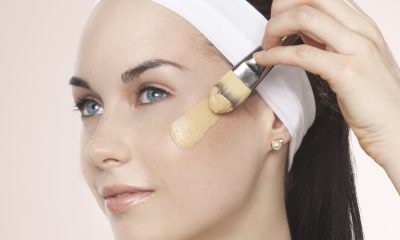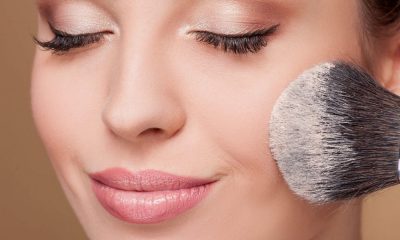No problem, as the following article can help you out by explaining the various skin types, as well as which skin care products will work with your skin type or condition to have your skin looking fabulous and flawless in no time at all. If you feel like your skin needs a bit more help than just a bit of product or a change in habit, contact your local dermatologist or skin esthetician to get professional help and results.
How to Determine Your Skin Type
There are 5 basic classifications when looking at skin type: normal, dry, oily, combination, and sensitive. In some instances, you may find that your skin falls into more than one category, and that is okay! The key is to determine what your skin type is so that you can better care for your skin and locate the products that will enhance your good features and help to minimize less flattering ones. Check out this list to determine your skin type and learn some tricks for dealing with your skin in particular:
- Normal skin: Normal skin is the most adaptable of skin types, and pretty much any product you put on this skin will work well. Normal skin is clean, smooth, and well hydrated.
- Dry skin: Dry skin is uncomfortable, and you may notice flaking, itching, and even premature wrinkles. Dry skin needs a good moisturizer, both day and night.
- Oily skin: If you have oily skin, then you have probably been aware of this fact for years. Oily skin tends to give its owners a lot of grief in the form of breakouts and acne, enlarged pores, and shiny spots. There are a lot of products to help those with oily skin, but it may take a little trial and error to find the right products for you.
- Combination skin: Most people actually have combination skin, which means that patches of your skin are dry, patches are oily, and so forth. For many people, the forehead and nose area are particularly oily. It is possible for you to have very different areas of skin on your face. Take a day or two to pay close attention to your skin, noticing where breakouts form, where your skin feels tight and dry, etc., until you have a pretty good idea that your skin is combination. If your skin is a combination type, then your skin requires a lot of maintenance, as areas around your eyes and on your cheeks, where you will tend to be dry, should be treated with heavy moisturizers. Oilier areas such as the nose and forehead require a lighter moisturizer and plenty of warm water to cleanse the areas in the morning and night.
- Sensitive skin: Sensitive skin can be a tough type to work with. A lot of creams and lotions, even shampoos, can irritate and aggravate your skin. Signs you may have sensitive skin include having very dry skin that often feels tight. Your skin is probably often itchy, and you may even notice red patches or scaly areas. The best products and moisturizers for those with sensitive skin are products that avoid dyes and fragrances; it may take a bit of trial and error to learn which products do not itch or irritate your skin or cause a breakout. In order to avoid aggravating your skin unnecessarily, it is probably a good idea to contact your local dermatologist or skin esthetician to learn about treatments, products, and even prescriptions that might help your sensitive skin.
Jon McDaniel

 Entertainment52 years ago
Entertainment52 years ago
 Fitness & Sports52 years ago
Fitness & Sports52 years ago
 Articles52 years ago
Articles52 years ago
 Entertainment52 years ago
Entertainment52 years ago
 Beauty52 years ago
Beauty52 years ago
 Fitness & Sports52 years ago
Fitness & Sports52 years ago
 Food52 years ago
Food52 years ago
 Travel52 years ago
Travel52 years ago


















